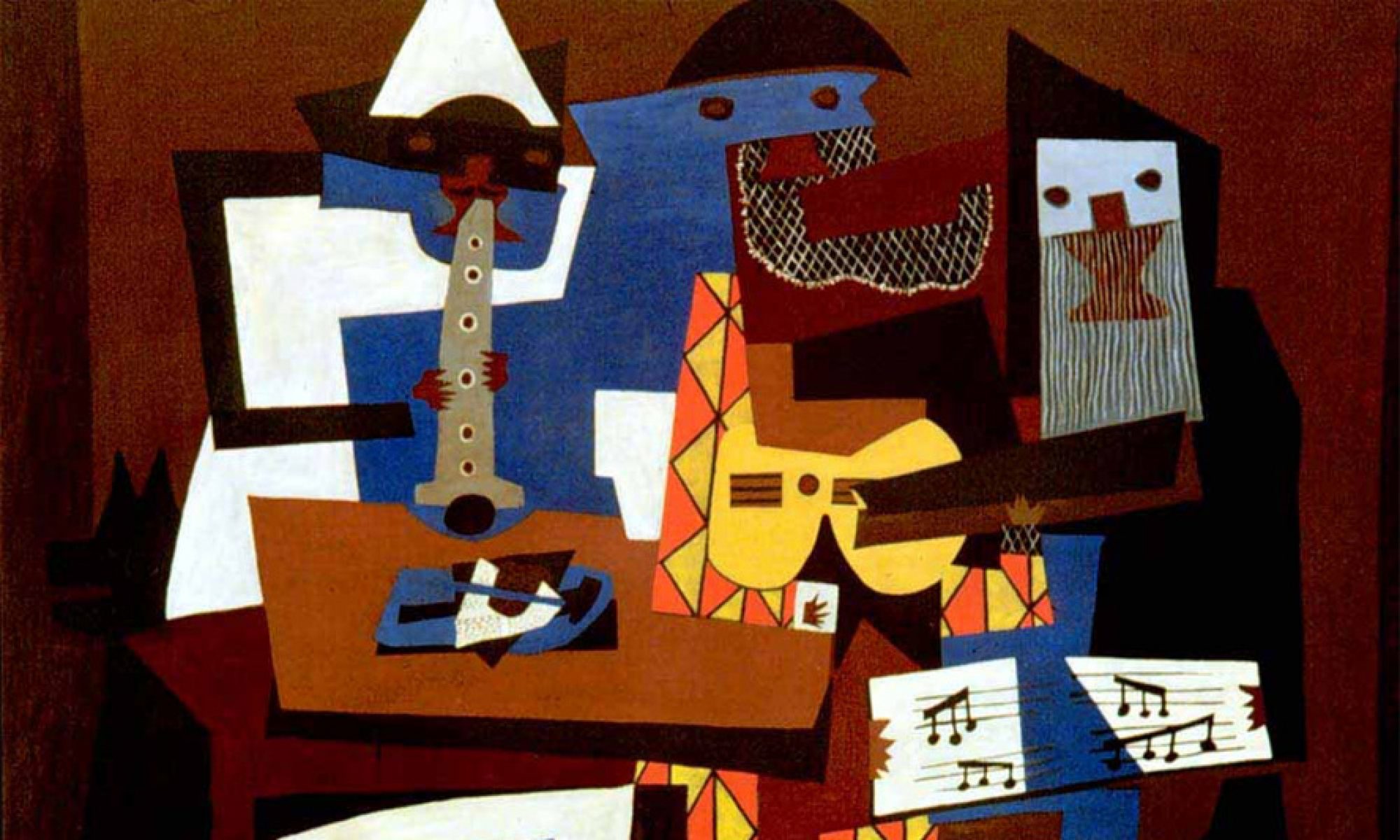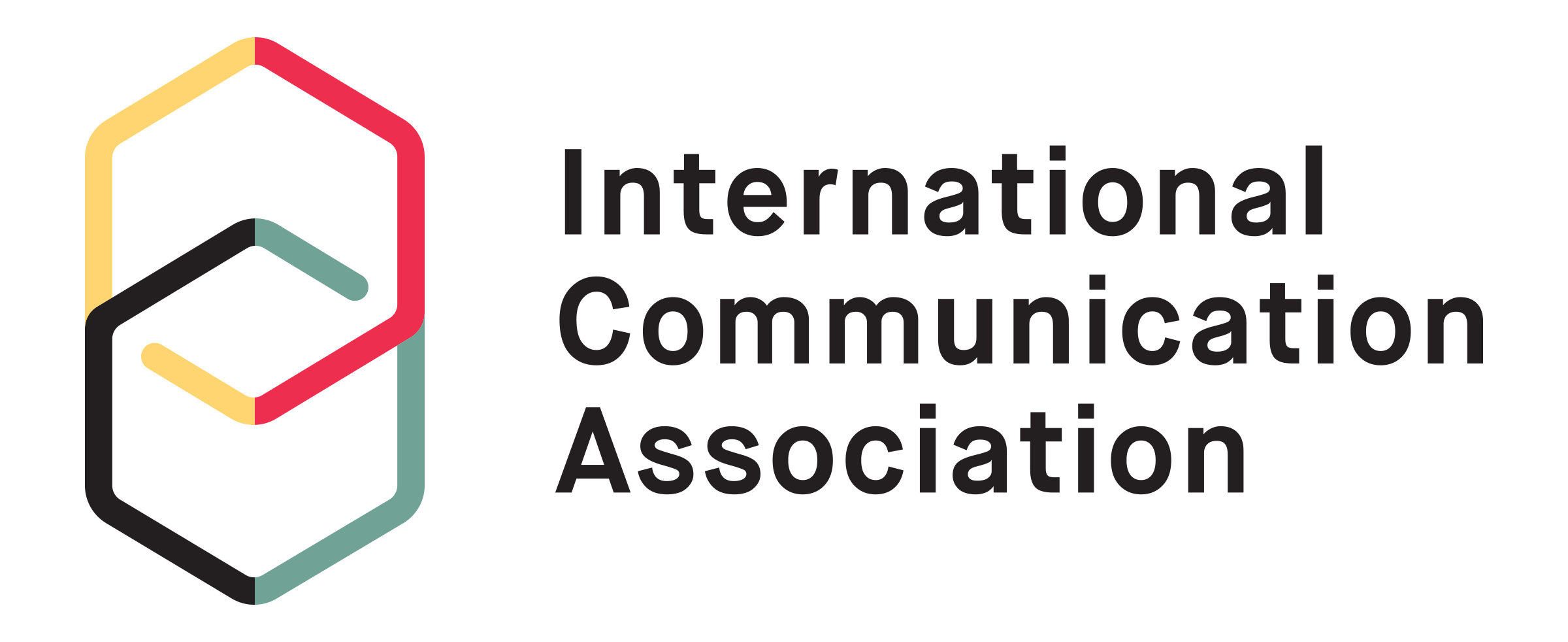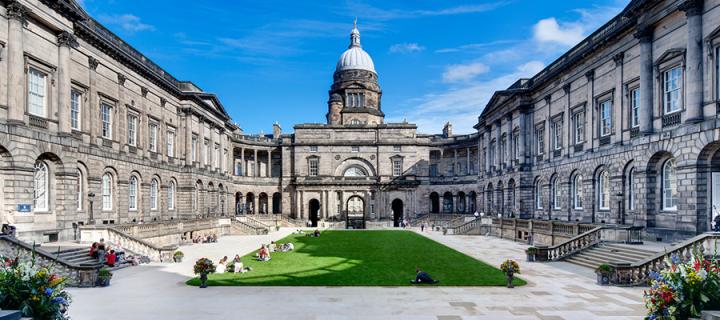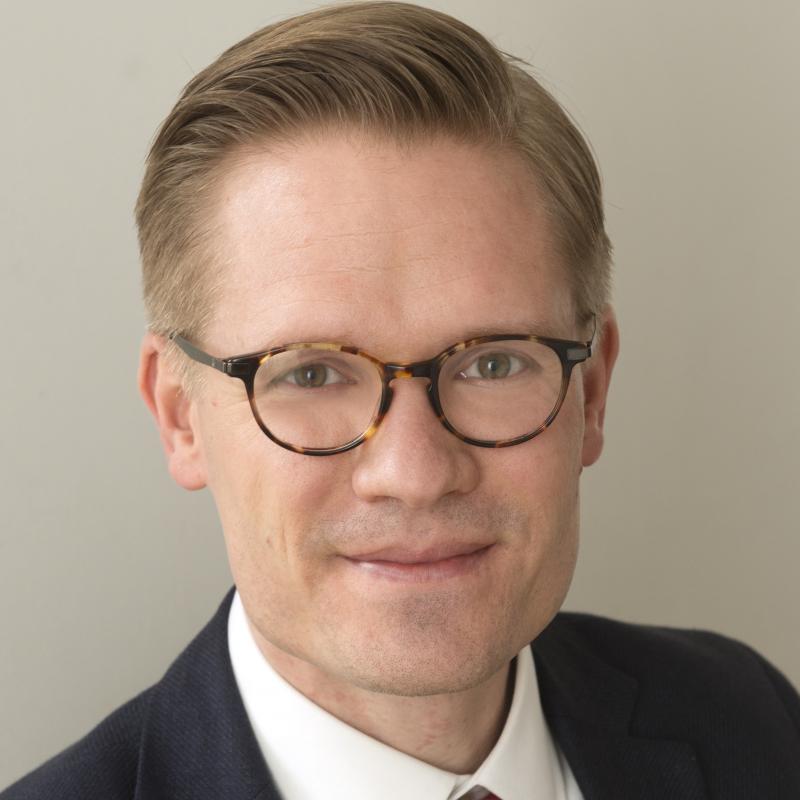On 17-18 October, more than 100 scholars from many different countries and disciplines will present research on the relationship between media and politics in an international perspective at the University of Edinburgh during the tenth conference of The International Journal of Press/Politics, for which I am honored to serve as Editor-in-Chief. The conference will be held at the John McIntyre Conference Centre at the University of Edinburgh. Registration is required to participate in the conference.
Browse the program by day
Wednesday, October 16
Thursday, October 17
Friday, October 18
Wednesday, October 16
19:30 Conference inaugural dinner
The Scotsman Hotel, 20 North Bridge, Edinburgh, EH1 1TR
Thursday, October 17
8:30-9:00 Coffee and badge pickup
9:00-9:15 Welcome
Room: Pentland East
Cristian Vaccari (University of Edinburgh)
9:15-10:30 Plenary session: “International (?) Journal of Press (?) Politics (?): Limited news consumption and what to do about it“
Room: Pentland East
Keynote speech by Magdalena Wojcieszak (University of California, Davis)
10:30-11:00 Coffee break
11:00-12:30 Panel 1A – Incivility, Misinformation, and Radicalization
Room: Pentland East
Chair: Arthur D. Soto-Vásquez (University of Nevada, Las Vegas)
Jennifer Stromer-Galley (Syracuse University) and Patricia Rossini (University of Glasgow)
Attack and Incivility in U.S. Presidential Campaigns in 2016 and 2020
Curd Knüpfer (University of Southern Denmark), Yunkang Yang (Texas A&M), and Mike Cowburn (European New School, Viadrina)
Connective Factions: How Hyper-Partisan Media and Highly Networked Elites Radicalize Parties
Taberez Ahmed Neyazi, Tan Khai Ee, and Ozan Kuru (National University of Singapore)
Moderating Effects of Perceived Political Incivility on the Relationship Between Media Consumption and Misinformation Vulnerability: Evidence from the 2022 Malaysian General Elections
11:00-12:30 Panel 1B – Rethinking Trust in News: Identity, Consumption, and Perceptions Across Audiences
Room: Pentland West
Chair: Ariel Hasell (University of Michigan)
Tali Aharoni (Hebrew University and University of Oxford)
Redefining trust in the news media
Diego Garusi and Clara Juarez Miro (University of Vienna)
Unpacking news consumption and trust decisions through a folk theory approach. A study of Austrian young adults
Benjamin Toff, Carolina Velloso, and Michael Ofori (University of Minnesota)
Bolstering trust by ‘letting them know who we are’: Political identity signalling in New York Times ‘enhanced bios’
11:00-12:30 Panel 1C – Digital Campaigning and Political Communication: Authenticity, Visuals, and Satire in Global Elections
Room: Prestonfield
Chair: Nick Anstead (London School of Economics)
Filip Bialy (University of Manchester and Adam Mickiewicz University Poznań), Rachel Gibson (University of Manchester), and Karolina Koc-Michalska (Audencia Business School and University of Silesia)
Data-Driven Authenticity?: Unpacking the rise and relevance of relational organising in Digital Campaigning in the Polish Parliamentary and US Presidential Campaign
Gaetano Scaduto (University of Milan Bicocca), Fedra Negri (University of Milan Bicocca), Moreno Mancosu (University of Turin, Collegio Carlo Alberto), and Silvia Decardi (University of Milan Bicocca)
Emotional Inconsistency in Online Political Communication: A Comparative Study of Text and Imagery by European Party Leaders on Instagram
Sarah Maria Schiffecker and Maria Shpeer (Texas Tech University)
Satirical Politics on Tap: An Analysis of the Austrian Beer Party’s Political Campaign Strategies
12:30-13:30 Lunch break
13:30-14:30 Plenary session: “It Takes a Village (to Edit a Journal)”
Room: Pentland East
Chair: Cristian Vaccari (University of Edinburgh)
C.W. Anderson (University of Milan)
Danielle K. Brown (Michigan State University)
Sophie Lecheler (University of Vienna)
Sandra González-Bailón (University of Pennsylvania)
14.30-16:30 Panel 2A – Media Narratives and Framing: Candidates, Campaigns, and Policies
Room: Pentland East
Chair: Gaetano Scaduto (University of Milan Bicocca)
Erik P. Bucy (Texas Tech University) and Nathan Ritchie (Loughborough University)
Ideal candidate, populist campaigner, or sure loser? Visual framing of major party candidates in the 2024 US and UK general elections *** presenting remotely
David Smith (University of Leicester), Dominic Wring (Loughborough University), and David Deacon (Loughborough University)
Re-alignment in Parliament, De-alignment in the Press: The 2024 UK general election
Nick Anstead (London School of Economics)
A New Temporal Dimension in Political Communication? The Post-Election Campaign in Liberal Democracies
Niamh Sammon (Technological University Dublin)
The role of Boris Johnson’s journalism in the rise of Conservative Parliamentary Party Euroscepticism, from a critical elite theory perspective
14.30-16:30 Panel 2B – Media Resilience and Resistance: Journalistic Strategies Against Democratic Backsliding and Populism
Room: Pentland West
Chair: Adam Koehler Brown (The New School for Social Research)
Kate Wright (University of Edinburgh), Martin Scott (University of East Anglia), and Mel Bunce (City, University of London)
How journalists resist democratic backsliding
Simone Benazzo (Université Libre de Bruxelles), Colin Porlezza (Università della Svizzera Italiana)
Journalism Innovation in Autocratizing Countries: Comparing Independent Media’s Resilience Strategies in Poland and Slovakia
Raiana de Carvalho (Furman University), Joao V. S. Ozawa (University of North Dakota), and Arthur D. Soto-Vásquez (University of Nevada, Las Vegas)
Memory-Making of the January Attacks in Brazil and the United States: Examining the Role of YouTube in Collective Remembrances of Far-Right Insurrections
Azmat Rasul (Zayed University)
Morally Disengaged Politics: Digital Media Use and Populist Politics in Pakistan
14.30-16:30 Panel 2C – Understanding the Diffusion and Effects of Misinformation across Different Contexts
Room: Prestonfield
Chair: Curd Knüpfer (University of Southern Denmark)
Thomas J. Billard (Northwestern University), Rachel E. Moran (University of Washington), Nash Jenkins (Northwestern University), and Walker West Brewer (Northwestern University)
Cross-National Agenda-Setting and the Global Spread of Misinformation: Unpacking the Transatlantic Flow of Anti-Transgender Misinformation between the US and the UK
Marlis Stubenvoll (University of Klagenfurt), Isabelle Freiling (University of Utah), and Jörg Matthes (University of Vienna)
Fact-bombing and fake-bombing: A dose-response experiment on the effects of repeated information sharing on social media
Augusto Valeriani (University of Bologna), Laura Iannelli (University of Sassari), and Giada Marino (University of Urbino)
The role of “News-Finds-Me” Perception, Political Knowledge, and Ideological Extremism in Misinformation Sharing Practices
Elena Broda (University of Gothenburg)
Seeing is not believing: The role of media trust and ideology in the differential susceptibility to media effects on misperceptions
16:30-17:00 Coffee break
17:00-18:30 Panel 3A – Political Communication and International Affairs: Geopolitics, Competition, and Conflict
Room: Pentland East
Chair: Babak Bahador (George Washington University)
Yaron Ariel, Dana Weimann, and Vered Elishar (The Max Stern Yezreel Valley College)
Influence of News Consumption and Psychological Factors on the Propagation of War-Time Rumors *** presenting remotely
Peter Berglez (Örebro University,) and Lea Hellmueller (City, University of London)
Towards Geopolitical Media Spheres? Theorizing Journalism in the De-Globalizing, Multipolar World Order
Yu-Chung Cheng, Hsin-HsienWang, Shinn-Shyr Wang, and Wei-Feng Tzeng (National Chengchi University)
Navigating Polarization: Understanding Twitter’s Dialogue on China in a Competitive Global Context
17:00-18:30 Panel 3B – News Sharing and Engagement Online: Messaging, Reporting, and Framing Contemporary Issues
Room: Pentland West
Chair: Raquel Recuero (Universidade Federal de Pelotas and National Institute of Science and Technology on Information Disputes and Sovereignty)
Isabele Mitozo (Federal University of Minas Gerais), João Cardoso L. Camargos (University of North Carolina at Chapel Hill and Federal University of Minas Gerais), and Camila Mont’Alverne (University of Strathclyde)
Exploring information sharing on instant messaging: An analysis of public Brazilian WhatsApp groups pro-Bolsonaro from 2018 to 2023
Johanna Disdier (Swansea University)
Geographical Influences on Media Reporting and Sharing of Contested Political Election Outcomes
Sabena Abdul Raheemm, Uchenna Eze, and Sang Jung Kim (University of Iowa)
“Modern Day Slavery”: Exploring the use of emotional frames in Human Trafficking education videos on YouTube and audience engagement
17:00-18:30 Panel 3C – Artificial Intelligence and Journalism: Trust, Attitudes, and Perspectives
Room: Prestonfield
Chair: Maysa Amer (Freie Universitaet Berlin, Germany)
Richard Fletcher, Felix M. Simon, Waqas Ejaz and, Rasmus Kleis Nielsen (University of Oxford)
What influences attitudes towards the use of generative AI in news?
Sophie Morosoli, Valeria Resendez, and Emma van der Goot (University of Amsterdam)
Trust in the age of AI. An experiment on how transparency impacts individuals’ trust in AI as a news source and perceived manipulation
Taewoo Kang (Michigan State University), Tim Vos (Michigan State University), Thomas Hanitzsch (Ludwig-Maximilians Universität Munich), Neil Thurman (Ludwig-Maximilians Universität Munich), and Imke Henkel (University of Leeds)
AI in the Shoes of Journalists: Which Journalists’ Perspectives Do LLMs Reflect?
19:30 Conference dinner
Playfair Library Hall, Old College, South Bridge, Edinburgh EH8 9YL
Go back to the top
Friday, October 18
8:30-9:00 Coffee and refreshments
9:00-10:30 Panel 4A – AI in News and Elections: Public and Expert Perceptions
Room: Pentland East
Chair: Isabele Mitozo (Federal University of Minas Gerais)
Aqsa Farooq, Marina Tulin, Elske van den Hoogen, and Claes de Vreese (University of Amsterdam)
Generative AI and the European Elections 2024: A Citizens’ Perspective
Amy Ross Arguedas, Felix M. Simon, Richard Fletcher, and Rasmus K. Nielsen (University of Oxford)
“For serious stuff like war or politics, you need people”: A qualitative study of public attitudes towards AI in news in Mexico, the United Kingdom, and United States
Bronwyn Jones (University of Edinburgh) and Vassilis Galanos (University of Stirling)
Generating risk: A qualitative study of experts’ perceptions of the risks posed by generative AI for journalism and the news ecosystem
9:00-10:30 Panel 4B – Media Influence on Political Attitudes: Negativity, Radicalization, and Partisanship in the United States
Room: Pentland West
Chair: Sacha Altay (University of Zürich)
Ariel Hasell (University of Michigan)
Overwhelmed by abundance and negativity: The consequences of political defeatism in the United States
Jun Luo (University of California, Los Angeles), Brett McCully (Collegio Carlo Alberto), and Wookun Kim (South Methodist University)
Radicalized by Local News Broadcasting? How Partisan Media Affects Hate Crimes in the United States
Asfa Shakeel (London School of Economics)
Partisan News and Polarisation
9:00-10:30 Panel 4C – Popular Culture and Politics in the Digital Age: TikTok, Music, and Football
Room: Prestonfield
Chair: Matthew Powers (University of Washington)
Giovanni Boccia Artieri and Valeria Donato (University of Urbino Carlo Bo)
TikTok private sphere: understanding the new features of the algorithmic public sphere
Dan Hiaeshutter-Rice (Michigan State University), Mia Carbone (University of California, Los Angeles), Ezgi Ulusoy (Michigan State University), Dustin Carnahan (Michigan State University), Manu Sastry (Michigan State University), and Joanna Gusis (Michigan State University)
Now It’s All About Versace: Music Preferences and Partisanship
Caroline Patatt and Jéssica Sandes Furtado (Universidade da Beira Interior)
Football is Politics: Analyzing Public Emotions in Neymar Jr.’s Case and PEC das Praias through the Instagram Accounts of Folha de S.Paulo and O Globo Newspapers
10:30-11:00 Coffee break
11:00-13:00 Panel 5A – Threats and Challenges to Journalistic Work: Dissent, Suppression, and Shifting Dynamics in Newsrooms
Room: Pentland East
Chair: Simone Benazzo (Université Libre de Bruxelles)
Ricardo Ribeiro Ferreira (University of Edinburgh)
Resistance is Futile: Covert Dissent and Rationalisation in Captured Newsrooms
Linette Lim (University College Dublin)
Unwanted Witnesses: Authoritarian Information Suppression Tactics and Resident Foreign Journalists in China
Roei Davidson and Oren Meyers (University of Haifa)
Under pressure: Journalistic work and the public interest in an era of media clientelism
Russell Hansen, Meagan Doll, Patricia Moy, and Matthew Powers (University of Washington)
The Feminization of Statehouse Reporting in the United States: A Field Analysis
11:00-13:00 Panel 5B – Media Narratives, Frames, and Public Perceptions in the Russia-Ukraine War
Room: Pentland West
Chair: Lea Hellmueller (City, University of London)
Ben O’Loughlin (Royal Holloway, University of London) and Babak Bahador (George Washington University)
Framing Peace in the Russia-Ukraine War: Peace journalism and news narratives
Delia Dumitrescu (Heidelberg University)
Visions of the War in Ukraine across European Mainstream Media Facebook Sites: A Computer Vision Approach
Kenzie Burchell (University of Toronto)
Newsfeeds of Individualized Suffering and Asymmetrical Power: Social Media Templates, Russian-language Reporting, and the Ukrainian War
Catherine A. Luther (University of Tennessee), Joshua D. Borycz (Vanderbilt University), Benjamin D. Horne (University of Tennessee), R. Alex Bentley (University of Tennessee), Suzie Allard (University of Tennessee), Brandon C. Prins (University of Tennessee), Garriy Shteynberg (University of Tennessee)
Media Trust and Opinions Regarding Russia’s 2022 Invasion of Ukraine Amongst Russian-speaking Populations in Belarus and Ukraine – Pre and Post Invasion
11:00-13:00 Panel 5C – Navigating Media Manipulation: Disinformation, Corporate Messaging, and Regulation
Room: Prestonfield
Chair: Aqsa Farooq (University of Amsterdam)
Chris Wells, Michelle Amazeen, and Sara Weinberg (Boston University)
How fossil fuel companies position their sincerity about climate action through native advertisements in American and British news media
Sacha Altay (University of Zürich), Emma Hoes (University of Zürich), and Magdalena Wojcieszak (University of California, Davis and University of Amsterdam)
News on Social Media Boosts Knowledge Belief Accuracy and Trust. An Instagram and WhatsApp field experiment in France and Germany
Jaume Suau (Blanquerna School of Communications and International Relations) and Dren Gërguri (University of Prishtina)
Disinformation narratives in Eastern Europe: Reach, impact and spreading patterns
Maysa Amer (Freie Universitaet Berlin, Germany)
Platform Regulations in the Mena Region: Countering Disinformation and Power Dynamics
13:00-14:00 Lunch break
14:00-15:30 Panel 6A – Evolving Landscapes in Digital Journalism: Time, Algorithms, and Hybridity
Room: Pentland East
Chair: Benjamin Toff (University of Minnesota)
C.W. Anderson (University of Milan), Danielle K. Brown (Michigan State University), Eugenia Michelstein (Universidad de San Andrés)
Time, Space, and the History of Digital News
Alexandra Colombier (University of Le Havre) and Duncan McCargo (Nanyang Technological University)
Hybrid Platformism: The Contentious Politics of Thailand’s Digital Media Landscape
Alyaa Anter (Ajman University) and Nermeen Ibrahim (Al-Ahram Canadian University)
New Gatekeepers: The Impact of Social Media Algorithms on Arab TV News Channels Coverage of Arab Issues
14:00-15:30 Panel 6B – Populism and Media Performance: Far-Right Discourses and Political Imagery
Room: Pentland West
Chair: Clara Juarez Miro (University of Vienna)
Ana Langer (University of Glasgow), Lluis de Nadal (University of Glasgow), and Eugenia Mitchelstein (Universidad de San Andrés)
Enter Milei: Performing populism in the hybrid media syste
Raquel Recuero (Universidade Federal de Pelotas and National Institute of Science and Technology on Information Disputes and Sovereignty) and Guilherme Curi (National Institute of Science and Technology on Information Disputes and Sovereignty)
From Newspapers to Newsfeeds: How Traditional Media and Facebook Legitimate Far-Right Discourses in Brazil and Argentina
Adam Koehler Brown (The New School for Social Research)
Corpus Exsecutiva: The Cultural Politics of the Body of Donald J. Trump
14:00-15:30 Panel 6C – Audiences in the Digital Age: The Role of Context, Group Dynamics, and Events
Room: Prestonfield
Chair: Walker Brewer (Northwestern University)
Shelley Boulianne and Kim Andersen (University of Southern Denmark)
Tuning Out on Current Affairs: Global Variations in Non-Use of News on Traditional and Social Media and Across Age and Political Interest
Subham Basak (University of Oxford)
Views and Voters: Interaction with online political information among young men from low-privilege backgrounds in Kolkata (India)
Claire Roney (University of Vienna), Daniel Wiesner (University of Vienna), Andreas A. Riedl (Ludwig-Maximilians Universität Munich), and Jakob-Moritz Eberl (University of Vienna)
Rally and Recalibrate – Political Dynamics Of Audience Expectations Of Journalism During Times of Crisis
15:30-16:00 Coffee break
16:00-17:30 Panel 7A – New Perspectives on Media Effects: Self-Censorship, Polarization, and Reinforcement
Room: Pentland East
Chair: Shelley Boulianne (University of Southern Denmark)
Moran Yarchi (Reichman University), Dana Markowitz-Elfassi (Reichman University), Tsahi (Zack) Hayat (Reichman University), and Amir Leshem (Bar-Ilan University)
The Spiral of Silence 2.0: Is the theory still relevant in social media group discussions?
Emelie Karlsson (Uppsala University)
Social media bots, trolls and political polarization: Evidence from a survey experiment
Kim Andersen (University of Southern Denmark) and Adam Shehata (University of Gothenburg)
Preference for Valenced News and Reinforcement of Societal Beliefs
16:00-17:30 Panel 7B – Trust in News and Science: Media Influence, Fact-Checking, and Public Perceptions
Room: Pentland West
Chair: Michelle Amazeen (Boston University)
Kathleen Beckers and Edina Strikovic (University of Amsterdam)
Public Opinion in Public Spaces. The Influence of Social Media on News Credibility and Public Perceptions
Matus Sloboda, Andrej Findor, Pavol Hardoš, and Artsiom Klunin (Comenius University)
The Effects of Information Provision about Fact-Checking on News Credibility and Reader Support: Evidence from Field-Experiments in Five CEE Countries
Afonso Biscaia (University of Lisbon), Susana Salgado (University of Lisbon), João Carlos Sousa (University of Lisbon), and Rosa Berganza (University Rey Juan Carlos)
Anti-elitism and trust in science: A complex relation moderated by media use? Evidence from the UK, Portugal, and Spain
16:00-17:30 Panel 7C – Media, Politics, and Influence: Scandals, Social Media, and Politicians’ Perceptions
Room: Prestonfield
Chair: Patricia Rossini (University of Glasgow)
Yukio Maeda (University of Tokyo) and Matthew Carlson (University of Vermont)
Political Speech, Scandals, and the News Media in Japan
Shepuya Famwang (University of Southampton)
Discursive Practices of Political Social Media Influencers in the 2023 Nigerian Election
Karolin Soontjens (University of Antwerp) Kathleen Beckers (University of Amsterdam), Emma van der Goot (University of Amsterdam), and Sophie Morosoli (University of Amsterdam)
Press and Prejudice: an interview study on why politicians feel disadvantaged by the media
17:30-18:15 Concluding remarks
Room: Pentland East
Cristian Vaccari (University of Edinburgh)
Taberez Ahmed Neyazi (National University of Singapore)
18:15 Farewell drinks reception
Go back to the top









